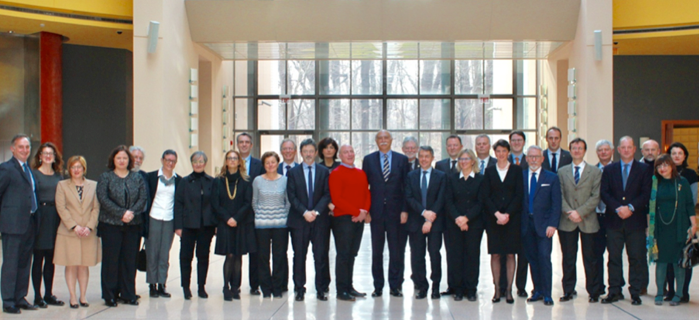On January 25, the Embassy of Italy in Washington and the Conference of Italian University Rectors (CRUI) inaugurated the first Italy-US University Partnership Forum to promote research, education, and technology transfer to over 100 representatives from 44 US and 22 Italian universities. The forum's attendees were convened by American Councils for International Education, along with the Association of Public and Land-Grant Universities (APLU), the National Council of University Research Administrators (NCURA), and the Association of International Education Administrators (AIEA).
Italy and the United States enjoy strong educational ties, noted by a steady increase of students and scholars from Italy to the US over the past decade and Italy's ranking as the top study abroad destination for American students, after the United Kingdom. The Forum participants addressed language fluency, course alignment, funding, and building a culture of innovation across campus as priority areas for collaboration.
Giorgio Sulligoi, Deputy Rector of the University of Trieste, and Adrian Erlinger, Program Manager for Innovation at American Councils, facilitated a workshop on advancing bilateral cooperation in technology transfer and commercialization. The working group presented 11 action items to CRUI to increase cooperation on regional innovation ecosystems, internships, funding models, business incubators, and linking technology transfer associations.
"The university plays a vital role, acting as the glue between business, education, and local authorities," said Armando Varricchio, Italy's Ambassador to the United States. The Ambassador expressed satisfaction with the Italy-US University Partnership Forum as a step forward to raise scientific and technological cooperation following a bilateral agreement signed in 1988.
The event also hosted roundtables to share best practices on academic exchange, joint research and mobility programs, and priority research areas in life sciences, food and agriculture, environment, physics, materials science, information communication technology, and technologies to support cultural heritage. Roundtable participants identified an ongoing need to connect and activate university-based networks to stimulate the growth of the broader ecosystem.
Members of the CRUI delegation visited several scientific agencies and multilateral banks as part of their visit to Washington, including the National Science Foundation (NSF), the National Institutes of Health (NIH), the Department of Energy (DOE), the National Institute of Standards and Technology (NIST), the World Bank, and the Latin American Development Bank to support basic research and technology development across university systems.

